HOW TO REMOVE WEEDS: PRACTICAL TIPS
Garden lovers know this: you're happy that spring is here and the gardening season is finally starting and everything is beginning to bloom splendidly once more. If only there wasn’t that pesky natural "enemy", which causes havoc in garden beds, on the lawn, paved walkways and on patios – weeds! The good news is that weeds can be kept in check with the right tools. But what is there to consider when removing weeds? Here are five questions and answers.
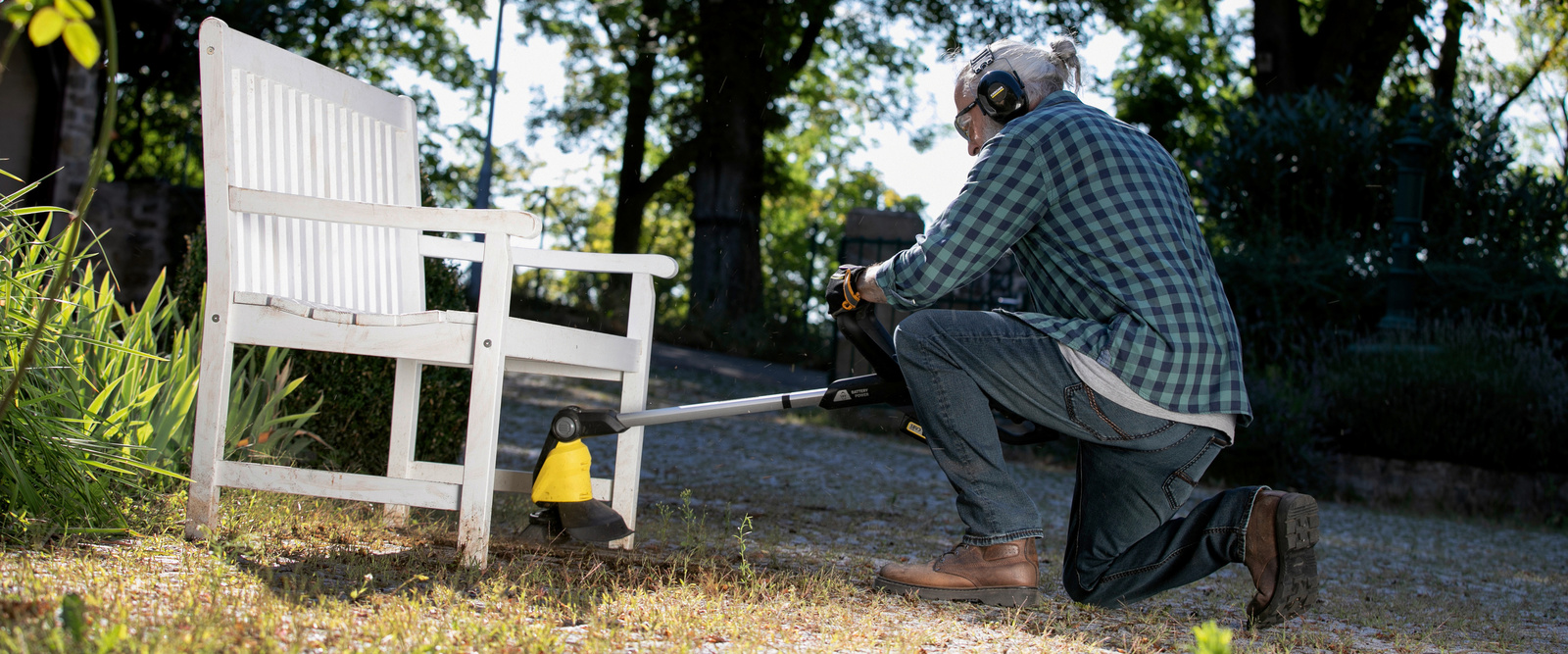
Do home remedies help with weed removal?
Definitively, home remedies if used correctly, are very effective and an alternative when professional garden tools are not available. Of course, it depends on how much time you want to invest in dealing with the matter. If you want to remove weeds quickly and as easily as possible, it is better to reach for professional tools. However, botanists and all-around gardening enthusiasts know that there are some home remedy tricks that can make weed removal easier.
Hot water is a traditional home remedy and removes weeds permanently. For example, you could pour boiling potato or pasta water over the offending weed instead of simply pouring it down the sink. The bubbling hot water destroys all the cells of the weed, however, to increase the effect, you have to repeat this process several times. Another disadvantage is that the weeds do not disappear immediately, it takes a while.
Another option is to "smother" the weeds. This works well, with bark mulch which can be purchased from garden centres. Bark mulch contains tannins that suppress the germination of weeds.
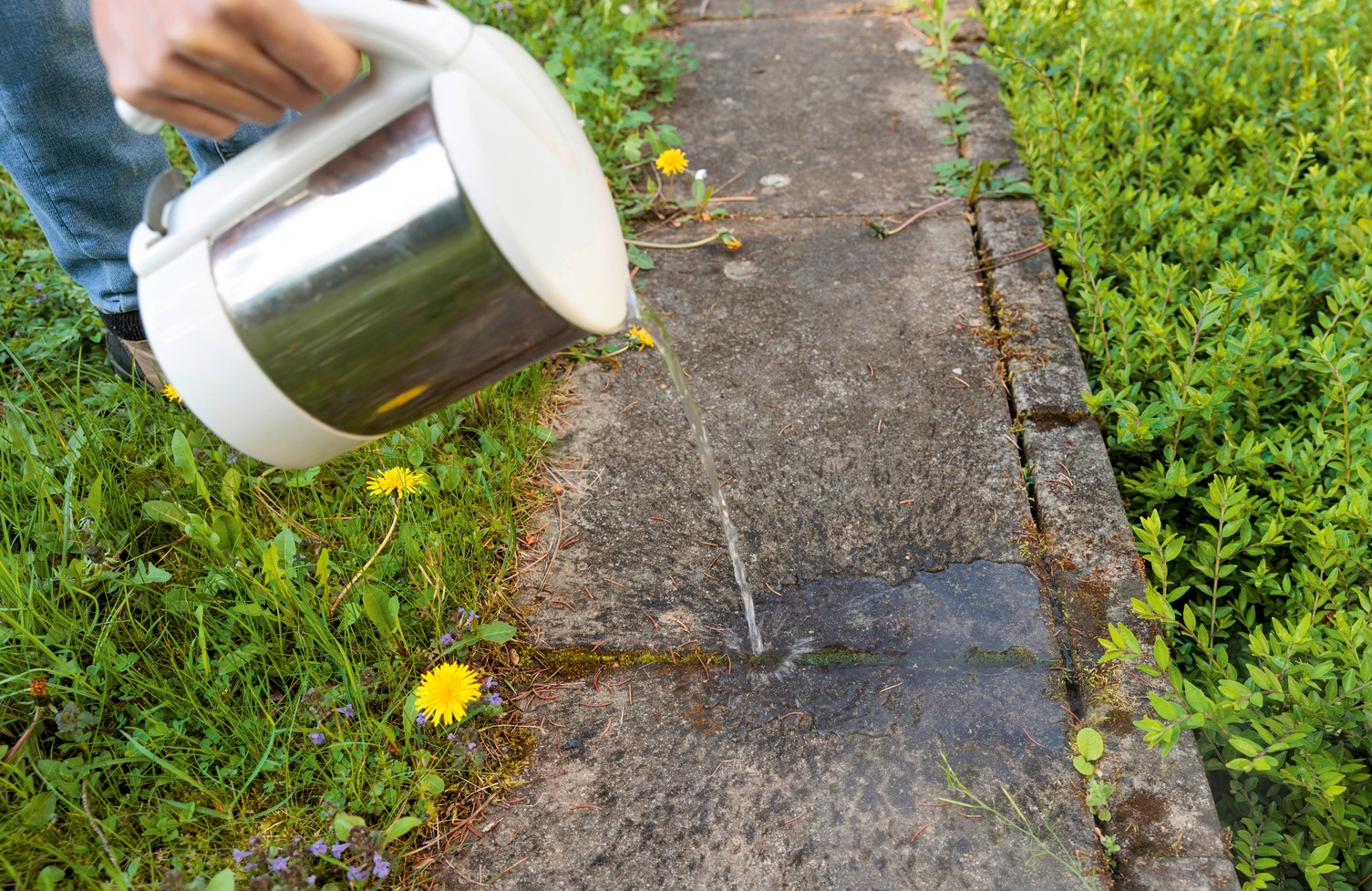
Is there a perfect time to weed the garden?
Weeding is best done after a rainfall or after watering the garden as the soil is moist and looser. Root and seeds are often less resistant when the soil is soft.
Whatever method or garden tools you use to remove weeds effectively, it is better to weed the wild-growing troublemakers several times per year than to wait too long, because then it will be all the more time-consuming. In addition, it’s also better for your beloved flowers and useful plants, because they do not have to share the water with the weeds. By the way, if you cut your hedges and shrubs dispose of the waste straight away, that way you don’t provide a breeding ground for weeds and moss in the first place.
What helps against weeds?
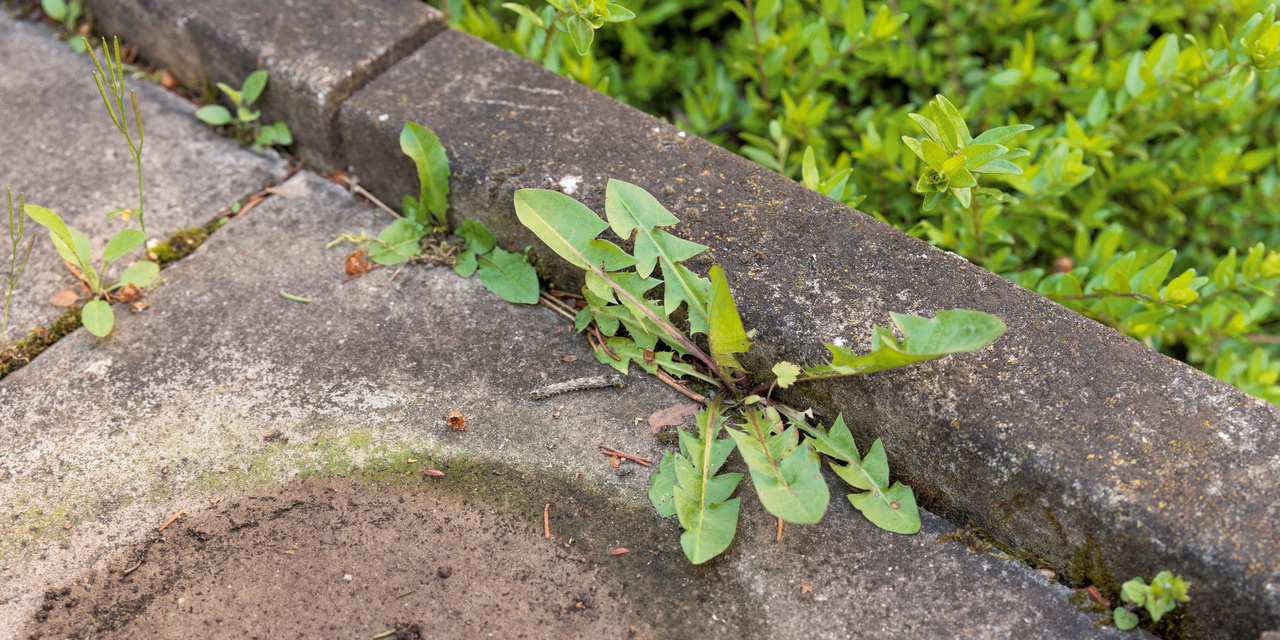
Weeds, i.e., plants that grow without human intervention, unlike cultivated and ornamental plants, are called weeds or wild weeds. Since weeds sprout randomly and permanently in many corners of the garden, it is not so easy to ‘keep them down’. Weeds such as dandelions and plantain grow primarily in flower beds and on the lawn. They are also found in paving stone joints. Most resort to a conventional joint scraper, garden spatula, or small pickaxe. This method can be used to remove weeds, but it is very time-consuming, as progress is very slow and the work quickly becomes strenuous.
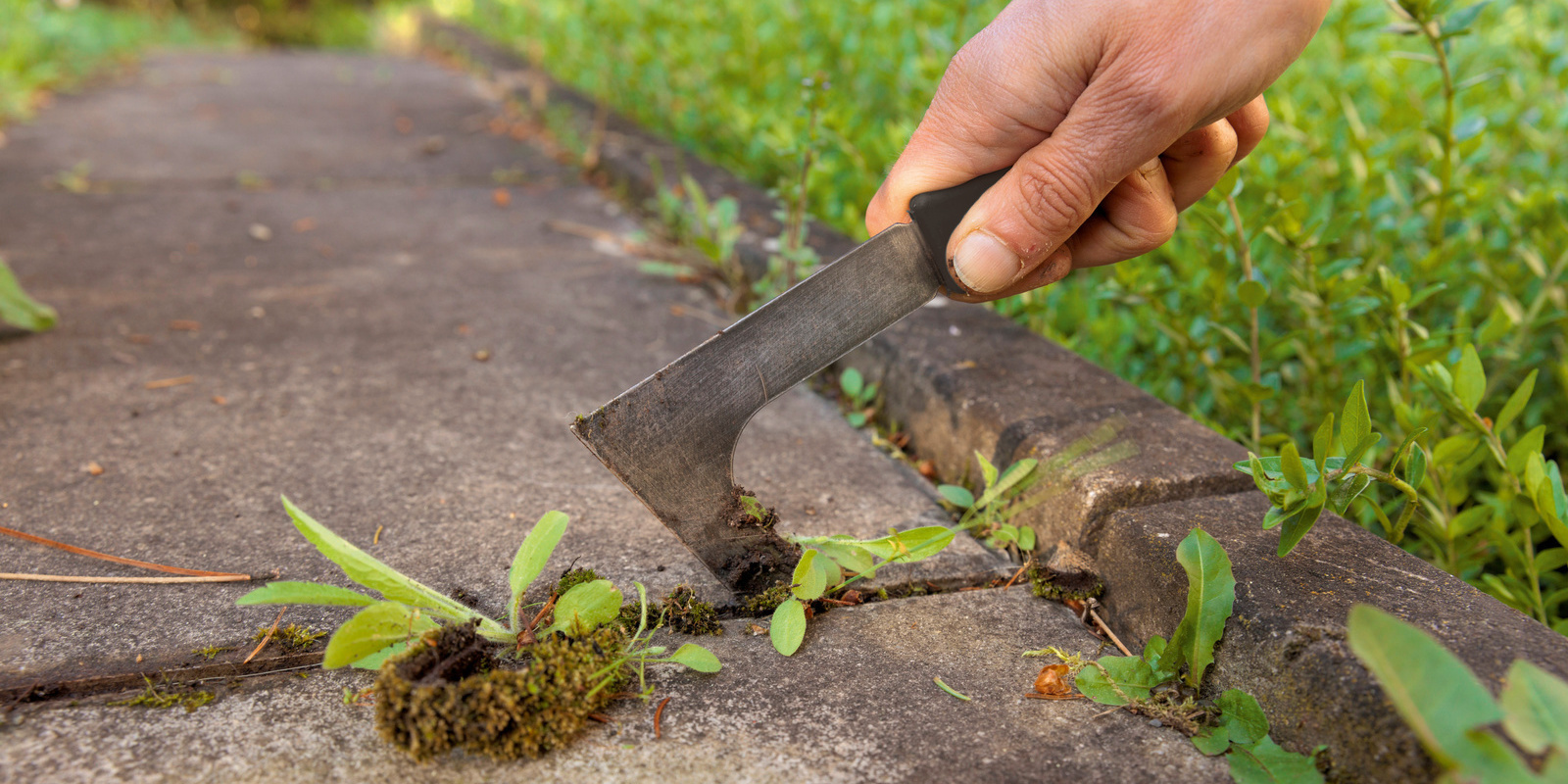
To remove weeds effectively while protecting the environment, there are several methods that are best used in combination. Weeding is one of them, but very time consuming. First of all, the paved area should be cleared of the coarsest debris, such as leaves with a broom, and then thoroughly clean the joints. This works best with the help of a special joint scraper. This can be very time-consuming if there are many joints to tend to. Afterwards remove any debris with a broom. The next step is to remove moss or fungus.
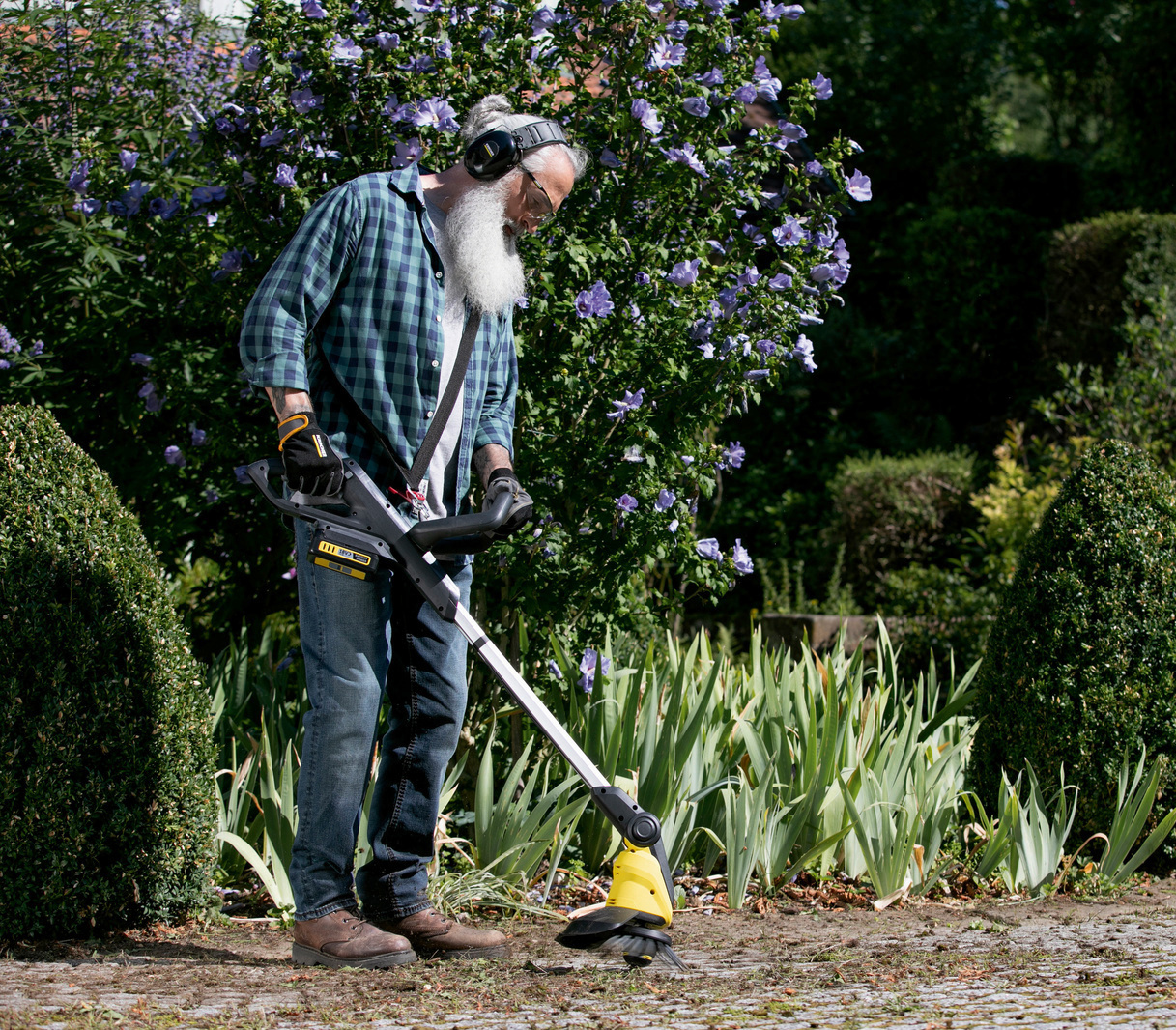
How to remove weeds effectively
These days, there are special gardening tools that make weed removal easier and significantly reduces the amount of work required. These include devices such as a cordless weed remover. Stone patios and paved driveways can be freed from weeds conveniently and, above all, with less strain on the back. Just a few steps are needed:
- Those who want to eliminate weeds with a weed remover, should choose a dry day to do so. The device works most effectively in dry conditions.
- When operating the weed remover, always wear appropriate protective clothing. This includes gloves, ear defenders, sturdy shoes and safety glasses.
- First, adjust the telescopic handle to the desired height. Then attach brushes and adjust the rotating head, push battery into the holder until it audibly clicks.
- As with a conventional lawn mower, the release button must now be pressed and held before the weed remover can be started via the device switch. Then release the unlock button.
- Now guide the weed remover over the surface using slow movements and at a slight angle, without exerting pressure. This allows the rotating nylon brush to remove all weeds from the surface. For very stubborn growth, perform this step several times.
Eliminate weeds using chemicals?
Time and time you read about chemical weed removers that are diluted with water and applied to the weeds. However, this is not recommended, because the chemicals attack plants and soil. They can also seep into the groundwater. Therefore, laws often prohibit the use of pesticides.
Weed removal by burning?
Another popular method to remove weeds is by burning them away. This method of weed removal is also not recommended, as burning weeds is a fire hazard to surrounding plants and buildings, as well as small animals.








